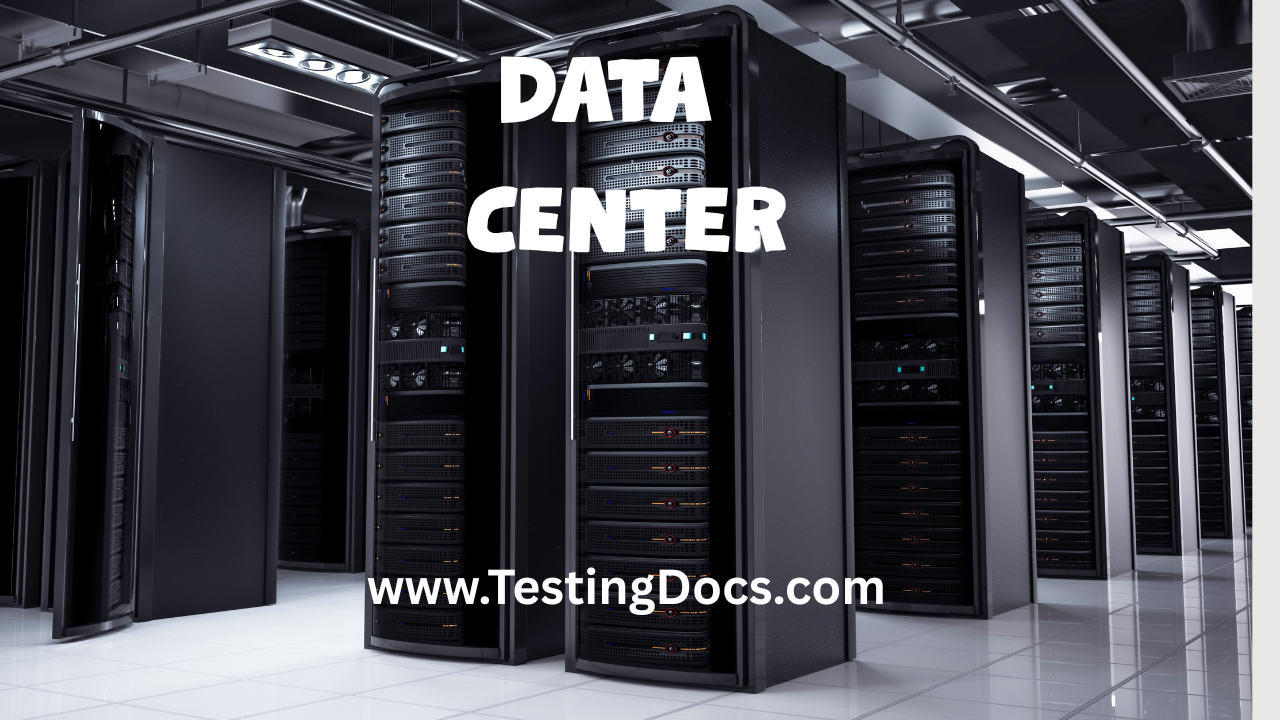What is Data Center?
What is Data Center?
A data center is a facility used to house computer systems and related components, such as storage systems and networking equipment. It is a critical part of modern IT infrastructure, especially for businesses, cloud services, and websites. A data center is a physical or virtual infrastructure that companies use to store, manage, and disseminate their data and applications.
Data Center Components
It contains the following components:
- Servers (to run applications and process data)
- Storage Systems (to hold data securely)
- Networking Equipment (like routers and switches to connect systems)
- Power Supplies (with backups like UPS and generators)
- Cooling Systems (to prevent overheating)

🧱 Components of a Data Center
- Servers – Physical machines that perform computing tasks.
- Storage Devices – Hard drives or SSDs storing vast amounts of data.
- Networking Equipment – Connects all components internally and to the internet.
- Power and Cooling Systems – Keeps the data center running 24/7 without overheating or power failure.
- Security Systems – Both physical (guards, locks) and digital (firewalls, intrusion detection).
🛠 Types of Data Centers
Some types of data center are as follows:
| Type | Description |
|---|---|
| Enterprise Data Center | Owned and operated by a company for internal use |
| Colocation Data Center | Rents out space to multiple businesses (shared facility) |
| Cloud Data Center | Run by cloud providers like AWS, Azure, Google Cloud |
| Edge Data Center | Smaller facilities located closer to end users for low latency |
🌐 Why Data Centers Matter
Why do companies use data centers:
- Host websites and apps
- Enable cloud computing
- Power big data and AI
- Support remote work and collaboration
- Provide disaster recovery and backup
🔐 Security in Data Centers
- Physical Security: Biometric access, surveillance cameras, guards.
- Digital Security: Firewalls, encryption, intrusion detection systems.
Video Tutorial
More tutorials:

